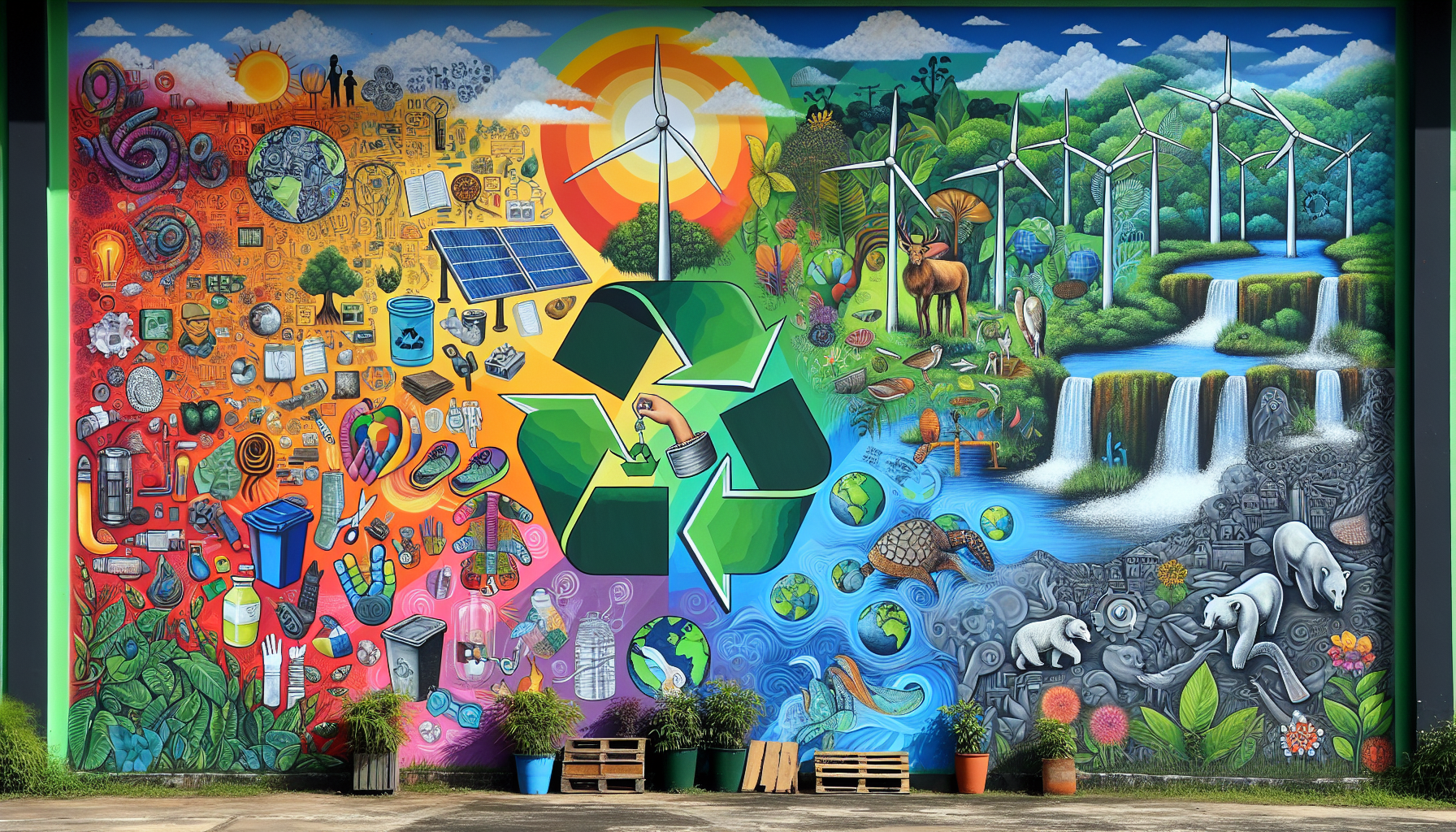The Intersection of Hii Careers and Sustainability

The Hii sector encompasses a diverse array of professions that intersect health, technology, and innovation. With pressing challenges such as climate change, resource depletion, and social inequality looming, there is an urgent need for professionals in this field to incorporate sustainability as a fundamental aspect of their work. Sustainable practices not only ensure the longevity of resources but also enhance the reputation of organizations. This dual benefit makes sustainability a vital aspect for attracting talent and customers alike.
Supporting Example: Changing Consumer Preferences
The demand for sustainable practices is driven by changing consumer preferences. A survey conducted by Nielsen revealed that 66% of global consumers are willing to pay more for sustainable brands. This shift in consumer behavior means that Hii professionals must adapt to meet the expectations of a more environmentally-conscious audience.
Emerging Roles Focused on Sustainability
As the demand for sustainability grows, new career opportunities are emerging within the Hii landscape. Here are some noteworthy roles that illustrate this shift: 1. **Sustainability Consultant**: These professionals analyze and advise organizations on implementing sustainable practices effectively. They work on projects ranging from energy efficiency to waste reduction, helping companies minimize their environmental impact. 2. **Health Informatics Specialist**: This role merges healthcare and data management with sustainability. Specialists ensure that health data systems are efficient, leveraging technology to reduce waste and improve patient outcomes while considering environmental impacts. 3. **Eco-friendly Product Designer**: Focused on creating products that are both functional and sustainable, these designers are essential in industries from healthcare equipment to consumer technology. They prioritize materials and processes that minimize environmental harm. 4. **Corporate Social Responsibility (CSR) Manager**: Responsible for developing and overseeing policies that promote ethical practices, CSR Managers are pivotal in integrating sustainability into the corporate culture of Hii organizations.
Supporting Example: Job Growth in Sustainability Roles
According to the U.S. Bureau of Labor Statistics, jobs in environmental science and sustainability are projected to grow by 8% from 2019 to 2029, faster than the average for all occupations. This growth illustrates the increasing importance of sustainability-focused roles within the Hii sector.
Companies Leading the Charge
Several companies within the Hii ecosystem are setting benchmarks for sustainability, demonstrating that profitability and eco-consciousness can coexist. For example: - **Philips** has made a commitment to ensuring that its products are sustainable by design. With initiatives focused on waste reduction and energy efficiency, Philips has minimized its ecological footprint while attracting environmentally-conscious consumers. - **Google** has invested heavily in renewable energy projects to power its data centers. Their innovations in energy management and commitment to sustainability position them as a leader in the tech industry, showcasing how sustainability can drive operational efficiency. - **Johnson & Johnson** has set ambitious sustainability goals aimed at reducing carbon emissions and promoting health equity. Their focus on eco-friendly practices has encouraged other companies in the health sector to adopt similar initiatives.
Supporting Evidence: The Impact of Sustainability on Corporate Success
Research indicates that companies with robust sustainability practices experience higher employee morale and retention rates. A report by Deloitte found that 70% of millennials consider a company’s environmental commitment when deciding where to work. This trend underscores the increasing importance of sustainability in attracting talent to the Hii sector. Moreover, organizations that prioritize sustainability often see a direct correlation with their financial performance. According to a study by Harvard Business Review, companies that integrated sustainable practices into their business models experienced an increase in profitability and shareholder value over time.
The intersection of Hii careers and sustainability represents a pivotal shift in how professionals approach their work in the health, innovation, and information sectors. With the emergence of new roles focused on eco-friendly practices and companies leading the way in sustainability, there is a clear pathway for future professionals. As awareness of environmental issues continues to grow, embracing sustainability not only benefits the planet but also enhances career prospects and business success. In this evolving landscape, individuals who adapt and champion sustainable practices will not only thrive but also contribute to a healthier, more equitable world. The future of Hii careers is not just about innovation and health; it is about ensuring that these advancements are sustainable for generations to come.
Sustainability Consultant
Environmental consulting firms, corporations with sustainability initiatives, and non-profit organizations.
Core Responsibilities
Analyze organizational practices and recommend sustainable strategies to minimize environmental impact.
Conduct assessments of energy usage, waste management, and resource consumption to identify areas for improvement.
Required Skills
Strong analytical skills and experience with sustainability metrics and reporting.
Excellent communication skills for presenting findings and recommendations to stakeholders.
Unique Qualifications
Certification in sustainability (e.g., LEED, ISO 14001) and experience in project management.
Health Informatics Specialist
Healthcare organizations, health tech companies, and governmental health agencies.
Core Responsibilities
Develop and implement health information systems that promote data efficiency and minimize waste.
Analyze health data to enhance patient outcomes while considering environmental sustainability.
Required Skills
Proficiency in health informatics software and data analysis tools.
Understanding of healthcare regulations and sustainability practices.
Unique Qualifications
A master's degree in Health Informatics or a related field, along with experience in project management.
Eco-friendly Product Designer
Manufacturing companies, tech firms, and product development companies committed to sustainability.
Core Responsibilities
Design products that utilize sustainable materials and eco-friendly manufacturing processes.
Collaborate with cross-functional teams to ensure product designs meet both functional and environmental standards.
Required Skills
Expertise in design software (e.g., CAD) and knowledge of sustainable materials.
Creative problem-solving skills to balance aesthetics with functionality.
Unique Qualifications
A degree in Industrial Design or Environmental Design, along with experience in sustainable product development.
Corporate Social Responsibility (CSR) Manager
Large corporations, non-profits, and NGOs with a focus on corporate responsibility.
Core Responsibilities
Develop and implement CSR strategies that align with the company's sustainability goals.
Monitor and report on the company’s social and environmental impact to stakeholders.
Required Skills
Strong leadership and interpersonal skills to engage employees and executives in CSR initiatives.
Proficient in data analysis and reporting to assess the effectiveness of CSR programs.
Unique Qualifications
A degree in Business Administration, Environmental Science, or related fields, and experience with stakeholder engagement.
Renewable Energy Project Manager
Renewable energy firms, utility companies, and government agencies focused on sustainability.
Core Responsibilities
Oversee the planning and implementation of renewable energy projects, ensuring they are completed on time and within budget.
Collaborate with engineers and contractors to ensure projects meet sustainability and regulatory standards.
Required Skills
Strong project management skills with knowledge of renewable energy technologies (solar, wind, etc.).
Ability to conduct feasibility studies and risk assessments for energy projects.
Unique Qualifications
A degree in Environmental Science, Engineering, or a related field, along with project management certification (e.g., PMP).


